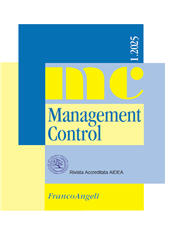Mutual Spatial Proximity, Organized Crime, and the Profitability of High-Growth Startups : the Case of Italian Gazelle Enterprises
237-259 p.
This study applies a spatial regression model to panel data to investigate the impact of spatial proximity between Italian high-growth startups, termed Gazelles, on their Return on Assets (ROA). The model incorporates a spatially lagged dependent variable to capture the influence of neighboring firms' performance. Furthermore, we examine the association between perceived crime levels in the provinces where these startups operate and their profitability. Our results show that operating profitability is positively associated with mutual geographic proximity among Gazelles, whereas it is negatively affected by elevated perceptions of local crime. These findings are relevant for entrepreneurs, incubators, and accelerators seeking to identify contextual factors that may enhance or impede firm performance. They also have significant implications for policymakers aiming to design strategies that foster positive externalities and mitigate detrimental externalities in entrepreneurial ecosystems. [Publisher's text]
is_part_of
Management Control : 1, 2025-
store_in_same_fr
-
information
doiCode: 10.3280/MACO2025-001011
issn: 2239-4397
KEYWORDS
- Organized crime, Spatial proximity of enterprises, Performance of high growth startups, Gazelle enterprises Startups


